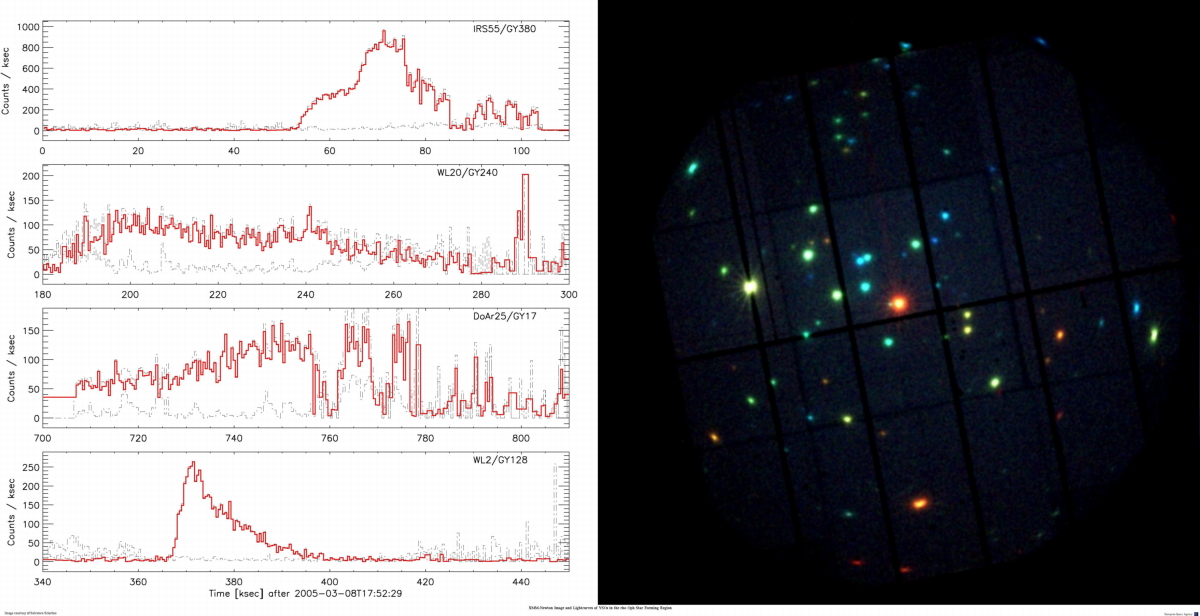
 Credit: Salvatore Sciortino and ESA
Credit: Salvatore Sciortino and ESA
DROXO
One big mystery is how young stars condition their environment. This is an important mystery since the interaction of young stars with their protostellar debris can influence the way in which planets form, and the way that life on those planets may begin. Stellar flares are thought to play an important role. Young stars spin rapidly and generate strong magnetic fields which produce gigantic releases of energy via stellar flares. These flares are similar to those from our own Sun which endanger astronauts and satellites alike, but orders of magnitude more powerful. New observations with X-ray telescopes like the XMM-Newton observatory show never-before seen details of how young stars flare. One such project is the Deep Rho Oph XMM-Newton Observation, or DROXO, a series of observations of the Rho Ophiuchus star forming region, which allows astronomers to efficiently survey high energy emission from a large group of young stars all at once. The image above right shows the X-ray emission from stars in the Rho Oph region as seen by the XMM pn detector; the red plots on the left show the variable X-ray emission from four of the stars in the XMM field.
Published: July 21, 2008
<
HEA Dictionary ● Archive
● Search HEAPOW
● Other Languages
● HEAPOW on Facebook
● Download all Images
● Education ● HEAD
>
Each week the HEASARC
brings you new, exciting and beautiful images from X-ray and Gamma ray
astronomy. Check back each week and be sure to check out the HEAPOW archive!
Last modified Tuesday, 27-Feb-2024 10:10:16 EST


